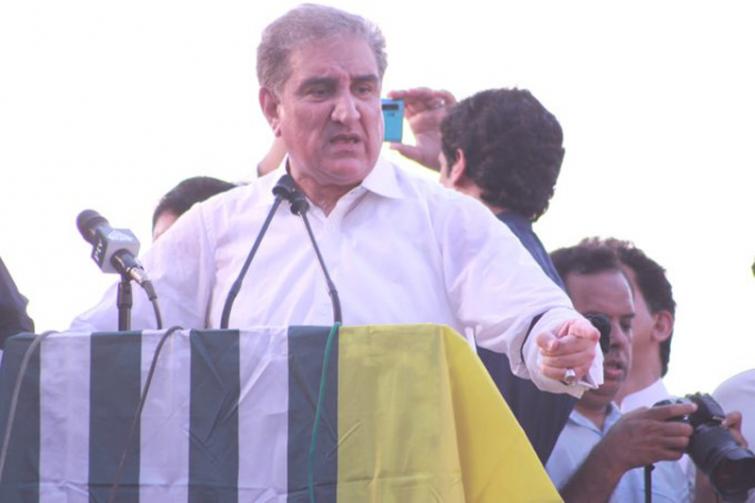
Jammu and Kashmir Issue: Pakistan FM Qureshi refuses to rule out 'accidental war' with India
Islamabad, Sept 13 (IBNS): Pakistan Foreign Minister Shah Mehmood Qureshi has said the situation in Jammu and Kashmir is such that it might risk sparking an "accidental war" with India.
Speaking to journalists on the sidelines of the UN Human Rights Council in Geneva, Shah Mehmood Qureshi was quoted as saying by Geo News that he believed both Pakistan and India "understand the consequences of a conflict."
He warned that "you cannot rule out an accidental war."
"If the situation persists... then anything is possible," Qureshi was quoted as saying by Geo News.
India on Tuesday countered Pakistan's remark about Jammu and Kashmir at the 42nd session of the United Nation's Human Rights Council and called it a "fabricated narrative" from the "epicentre of global terrorism."
Responding to the neighbouring country's remarks, India said: "One delegation has given a running commentary with offensive rhetoric of false allegations and concocted charges against my country. The world is aware that this fabricated narrative comes from the epicentre of global terrorism, where ring leaders were sheltered for years."
Slamming the neighbouring country more, India said: "This nation (Pakistan) conducts cross-border terrorism as a form of ‘alternate diplomacy’. My delegation will separately exercise the right to respond."
The Indian delegation once again made it clear that India will not tolerate any external interference in the Kashmir issue.
"We wish to reiterate that this sovereign decision, like other legislations passed by Parliament, is entirely internal to India. No country can accept interference in its internal affairs, certainly not India," Indian delegation stated.
The Indian government recently scrapped the Article 370 which provided special status to Jammu and Kashmir. The government bifurcated Jammu and Kashmir into two Union Territories, Jammu and Kashmir with an assembly and Ladakh without an assembly.
The delegation at UNHRC informed that despite challenging circumstances, Jammu & Kashmir’s Civil Administration is ensuring basic services, essential supplies, normal functioning of institutions, mobility and nearly full connectivity.
"Democratic processes have been initiated. Restrictions are being eased continuously. Temporary preventive and precautionary measures were necessitated to ensure safety and security of our citizens in the face of credible threats of cross-border terrorism," India claimed.
Reacting to allegations of human rights' violations, India said: "Those who abet, finance and support terrorism in any form on territory under their control are in truth the worst violators of human rights."
"The world, in particular India, has suffered greatly on account of the activities by practitioners of state sponsored terrorism and it is time to collectively take decisive and firm action against terror groups and their abettors who threaten the fundamental human right to life."
Islamabad has already failed to raise the issue at the influential UN Security Council last month.
The 14 members of the UNSC except China in their informal meeting broadly agreed that matters between India and Pakistan should be settled bilaterally in the spirit of the Shimla Agreement of 1972 and Lahore Declaration inked in 1999 during the tenure of Atal Bihari Vajpayee and Nawaz Sharif as Prime Ministers in the two countries.
Support Our Journalism
We cannot do without you.. your contribution supports unbiased journalism
IBNS is not driven by any ism- not wokeism, not racism, not skewed secularism, not hyper right-wing or left liberal ideals, nor by any hardline religious beliefs or hyper nationalism. We want to serve you good old objective news, as they are. We do not judge or preach. We let people decide for themselves. We only try to present factual and well-sourced news.







